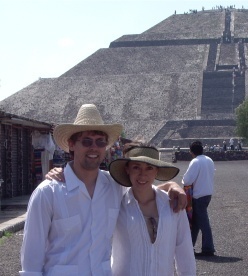Bill Gates, charity and ending poverty


Anyway, I put "retirement" in quotes as Mr. Gates isn't really "retiring" in the sense most Americans normally define the term (which wouldn't really apply well to Gates, who is only 50). Instead of practicing his golf long shot, buying an RV, and sinking into retirement obscurity, he is planning to spend his time and considerable financial resources to try to solve problems world governments have failed to solve...if they have tried to solve them at all.
As the Economist noted in a recent commentary on Gates' plans (which was written before Warren Buffet announced his 30 billion donation to the Gates Foundation), private philanthropy can be particularly beneficial.
No matter what the inspiration, philanthropy is good for doing all sorts of things governments fail at. Free of the vicissitudes of votes and public opinion, philanthropists can take on causes that are unpopular or neglected. They can innovate by promoting remedies that are otherwise unfeasible or remote.
Furthermore, a person as goal-driven as Gates marshalling this money to productive uses can only result in good things. Charities don't have a track record of spending its money well. With a businessman like Bill Gates working full time ensuring that money is spent effectively, that trend can be broken.
The Gates foundation is concentrating on health care and education, two things identified by Jeffrey Sachs, author of "The End of Poverty," as foundational issues holding back development in poor nations. Also noted by Mr. Sachs, however, is the scope of the problem, which is beyond even the resources of a charity with almost 60 billion in available resources (adding in Buffet's contribution).
Mr. Sachs notes that the root cause of persistent poverty is that the extreme poor, measured as those who make less than $1.08 per day (which includes 1.1 billion people, or around 1/6th of the world's population), spend all their money on basic needs and thus lack the funds to invest in the future. Raising them above that level, as well as moderating certain poverty-related costs (such as the problem of a working-age population rapidly dying off due to AIDS), enables them to "climb the ladder" of economic development (using a Sachs' analogy) leading them towards sustainable growth and integration with the global economy.
It's a compelling argument (and one I don't do justice to, hence my link to the book on Amazon), though if true, it means that the rich world would have to start transfering $135 billion a year to developing economies to raise income levels above basic needs, a figure that rises to $195 billion a year by 2015. The rewards are that poor nations could have the chance to escape extreme poverty and grow sustainably without the need for foreign top-ups. The costs, however, aren't so dramatic when one considers that the sum constitutes a mere 0.44% - 0.54% of rich world GNP, far less than the 0.7% of GNP rich nations (including the United States) have ALREADY committed to contribute as part of the UN's Millenium Development Goals.
My point is that one charitable foundation can't be the silver bullet that will solve all problems (which is stating the obvious). The fact that the Gates foundation does have a sizable investment pool that can be applied to such issues, however, does make a difference. It incentivizes others who have benefited disproportionatly from the spreading global economy to do something useful with that accumulation, if nothing else than to acquire a family respectability that the Buffet family has and will have, but the Hilton family lacks. It enables them to experiment with solutions that governments, constrained by public opinion and interest groups, could not attempt. Provided they find good solutions, the quantity of money involved is guaranteed to make the success large enough as to be noticed by governments around the world.
Once noticed, that could open the doors to the funds that are really needed to solve the problem of poverty - a problem that, in my opinion, is the number one issue the world needs to face. Poverty lies at the epicenter of many of the issues that stress rich world nations' foreign policy, such as the ability to sustain democracy and avoid dictatorship, illegal immigration, religious extremism and environmental destruction. If we want to lessen the risks associated with these issues, then poverty needs to be something we take seriously.
Few can disagree that Bill Gates and the company he created had a tremendous effect on the computing world. I'm hoping he has at least as much success in his next endeavor.